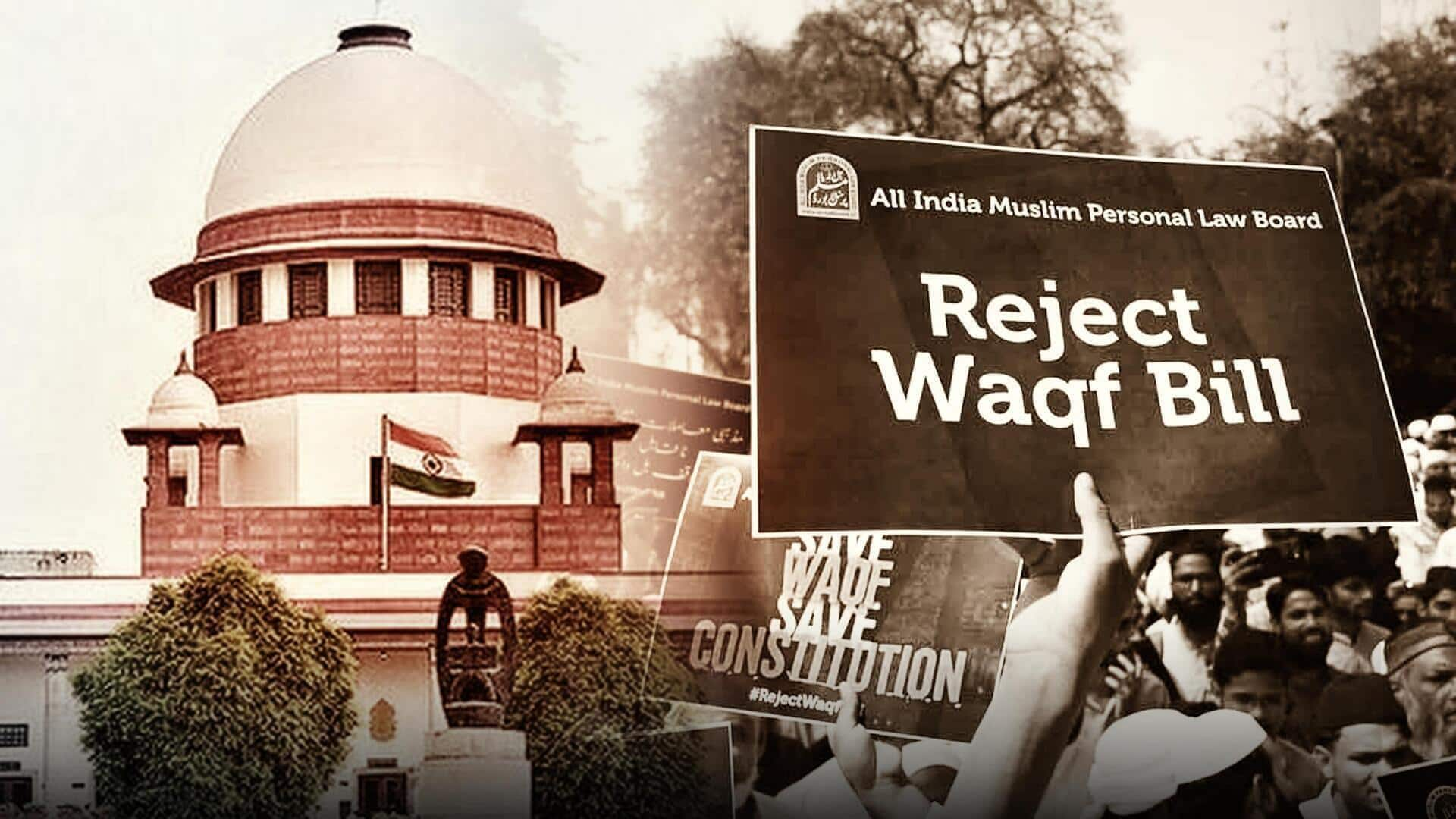
Supreme Court sends petitions challenging Waqf Act to another bench
What's the story
The Supreme Court bench headed by Chief Justice of India Sanjiv Khanna has transferred the petitions challenging the Waqf (Amendment) Act, 2025, to a bench headed by Justice BR Gavai. The move came as CJI Khanna is set to retire on May 13, and the case demands extensive hearings even for an interim order. CJI Khanna has suggested listing the matter before Justice Gavai next Wednesday for both interim and final orders.
Remarks
Matter has to be heard on any reasonable day: CJI
"We have gone through the counter and rejoinder. Yes some points have been raised on registration and some figures which are disputed by petitioners. It needs to be dealt with. There are two things which have to point out. I do not want to reserve any judgment or order even in interim stage," CJI Khanna said. "This matter has to be heard on...reasonable day. It will not be before me," he said. Solicitor General Tushar Mehta agreed with this suggestion.
Legislative history
Background of the Waqf (Amendment) Act, 2025
"We would have loved to pursue your lordship as every contention has an answer. But we cannot embarrass you because there is no time," SG Mehta said. The court then ordered, "List this next Wednesday (May 14) before a bench presided over by Justice BR Gavai." The Waqf (Amendment) Act, 2025, is a controversial law amending the Waqf Act, 1995. The law governs properties dedicated only for religious or charitable use under Islamic law.
Legal challenge
Petitioners argue that the amendment discriminates against Muslims
Several petitions have been lodged in the Supreme Court against the constitutional validity of the Waqf (Amendment) Act, 2025. Among them are Congress MP Mohammad Jawed and AIMIM MP Asaduddin Owaisi. Petitioners argue that the amendments target Muslim religious endowments selectively and interfere with their constitutionally protected right to manage their own religious affairs.
Government's defense
Centre defends exclusion of 'waqf by user' from definition
The main question in the challenge to the Waqf (Amendment) Act, 2025 is the exclusion of 'waqf by user' from its statutory definition. The petitioners argue this would deprive historical mosques, graveyards and charitable properties of their religious character. In its defense, the Union government informed the SC that despite a mandatory registration regime for all types of waqfs since 1923, individuals or organizations continued making unauthorized claims over the challenged government lands as waqfs.
Support for amendment
Concerns over Central Waqf Council members
Concerns have also been raised over the involvement of non-Muslims on the Central Waqf Council and State Waqf Boards. Under the current setup, 12 of the 22 Central Council members (excluding the Union Minister of Minority Affairs) may be from any religious community. Similarly, just four of the 11 members of a State Waqf Board must be Muslim. This significant decrease in Muslim representation reconfigures waqf as largely an economic entity, separating it from its religious underpinnings.
Inclusivity response
Government responds to concerns over inclusion of non-Muslims
The Centre also responded to the issue of including non-Muslims in the Central Waqf Council and State Waqf Boards. It said these amendments don't violate the rights of the Muslim community under Article 26. The government clarified non-Muslim members are a "microscopic minority" in such bodies, and their presence is to promote inclusivity.